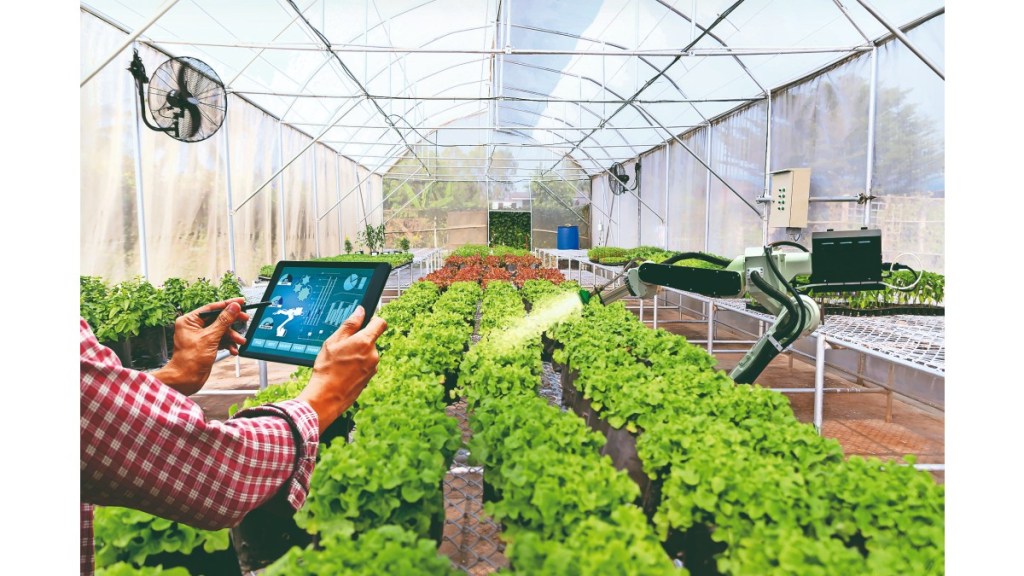Recently, Microsoft CEO Satya Nadella shared a video talking about the success story of its Project Farm Vibes launched in 2022 in Maharashtra’s Baramati, showcasing how AI-driven solutions improved crop yield by 40% and reduced fertiliser use by 25% of sugarcane farmers. In the Microsoft blog, it is claimed that it also resulted in 50% water conservation, reduced harvest time from 18 to 12 months and accounted for 12% reduction in post-harvest losses.
It was initiated through a collaboration with the Agricultural Development Trust (ADT), which aims to drive sustainable and efficient farming practices. Microsoft Research, through Project Farm Vibes, an open-source research project, is actively developing AI-driven solutions to further revolutionise India’s agricultural sector.
Nadella said AI-integrated geospatial data from drones, satellites, and soil sensors, delivering real-time, localised insights to farmers in their native languages. “The one example that I wanted to highlight was one of the small farmers who was part of the Baramati Co-op, where you can take this powerful technology but make it have an impact, where a small landowner is able to improve the yield of their land. And the numbers they shared in terms of reduction in chemicals, improvement in water usage, and ultimately, yield was phenomenal,” he said in the video.
He talked about how there is focus on vernacular languages to make AI driven insights easily comprehensible for the farmers. “One of the things it does is sensor fusion. We’ve been talking about it for decades. This is using geospatial data, spatial-temporal data from drones, from satellites, from the soil, all getting connected in real-time and then to apply AI to it and then translate it back into knowledge for a farmer who is just asking questions in their vernacular language.
That’s the stitching together is pretty phenomenal to see,” he said. His video garnered considerable attention on social media, with many saying this is one of the most significant uses of AI.
As per news reports, the central government has also been contemplating to earmark Rs 6,000 crore to promote precision farming — a modern approach that uses smart technology such as Internet of Things, AI, drones and data analytics to boost production through maximal use of resources while minimising environmental impact.
Meanwhile, in Bihar’s Hajipur, a science graduate and former homemaker, Soni is at the forefront of promoting sustainable farming practices with the help of technology. She runs a shop stocked with climate-resilient seeds, organic manure, and even a drone for irrigation which she says takes about just 5-7 minutes at Rs 300-500 to irrigate one acre of land, which otherwise takes 3-4 hours and costs much more in labour. However, the catch is that drones are a big investment and battery costs are high.
In Madhya Pradesh, as per news reports, Sarita Damle, a farmer who is a mother of two, an agriculture extension agent, and cultivates maize, lentil, wheat and other crops, reluctantly used an AI-powered Farmer.Chat app. She did not want to waste time on such projects, hence she was relying on the traditional community-based farmer-to-farmer advice for farming.
Reportedly, a pest infestation on her own farm in Kasda Khurd village in Madhya Pradesh convinced her that the Farmer.Chat app might be of some help.
She used the app which gave her information about how to treat her fields both chemically and organically. She opted for the organic route and followed the instructions, which worked for her.
Farmer.Chat was created in partnership with OpenAI, and is linked to the ministry of agriculture and farmers welfare’s digital public infrastructure VISTAAR (Virtually Integrated Systems to Access Agricultural Resources).
The app was rolled out in 2023 to more than 5,000 field-level agriculture extension workers in five states of the country — Bihar, Madhya Pradesh, Rajasthan, Uttar Pradesh, and Jharkhand.
Another news reports profiles a farmer, Binod Kumar Mahto, who used AI and digital tools for water management, early disease detection and better crop monitoring. He linked drip irrigation to AI, automating the entire irrigation system.
As a social media user pointed out in Nadella’s video, we might say AI is ‘revolutionising’ the agriculture sector, but what is essentially happening is ‘evolution’ of how things are being done.








